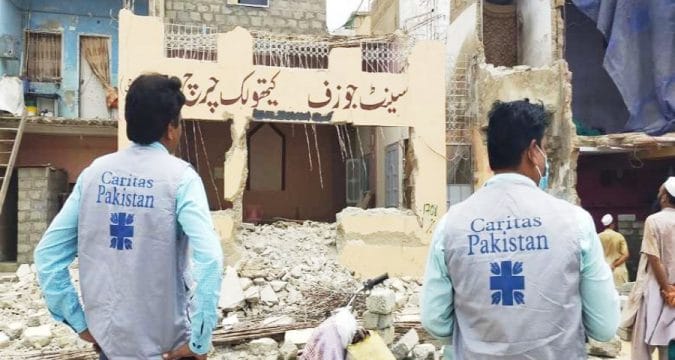
(UCAN): On August 9, the government of Pakistan dropped a bill meant to protect the interests of religious minorities as civil society organisations called for a stronger law to protect basic human rights.
The National Assembly, Pakistan’s lower house, passed the draft law— the National Commission for Minorities Bill, 2023—on August 7, however, the upper house, the Senate, did not table the bill for discussion on August 9, the last session of this government.
The bill now faces an uncertain future as the government recommended the dissolution of parliament to help the nation elect a new government within months.
The bill was opposed by the Joint Action Committee for Peoples Rights [JAC], which includes Muslims and Christians, which said the bill does not ensure that the rights body will be “effective, independent, autonomous.”
One key objection is that the word “rights” is not included in the bill’s title to make its objectives clear. Another is over the commission’s composition, which critics say doesn’t guarantee all minorities will be sufficiently represented and their rights realised.
We will keep raising our voice demanding the government to bring changes in the bill according to the recommendations of civil society organisations
Peter Jacob
The bill “manifests gaps, which need to be addressed to make the prospective minority rights body truly functional, and effective, independent, autonomous, and a resourceful minority rights institution,” the action committee said in a statement on August 7.
Peter Jacob, a Catholic human rights activist, said the government dropping the bill was “a positive development.”
“We will keep raising our voice demanding the government to bring changes in the bill according to the recommendations of civil society organisations,” he said on August 9.
The bill was proposed after the country’s Supreme Court asked the government in 2014 to establish an independent and effective mechanism to protect the rights of religious minorities—such as Christians, Hindus and Sikhs—amid escalating complaints of their persecution.
Jacob said the Senate dropped the bill because a few ruling party members opposed it.
The action committee, which includes 37 Muslim and Christian organizations, including the Pakistan bishops’ National Commission for Justice and Peace, wanted the government of prime minister, Shahbaz Sharif, to come up with a comprehensive bill as suggested by the Supreme Court.
Pakistan does not have an established system to ensure the basic rights of religious minorities
Pakistan does not have an established system to ensure the basic rights of religious minorities. Since 1990, the Federal Ministry for Religious Affairs has formed ad-hoc commissions to protect their interests.
But such commissions, despite having members from religious minorities, have been ineffective because they lacked competence, statutory powers, autonomy, and funds, rights groups say.
“We wish that the government had learned from past experiments,” said Irfan Mufti, convener of the Joint Action Council.
On August 10, Sharif advised the president, Arif Alvi, to dissolve parliament as the world’s fifth-most populous nation goes to the polls in the midst of deepening economic and political crises.
Pakistan has to have an election within 90 days of the dissolution of parliament. It is up to the new government to present the bill in parliament.
Christians, Hindus, and Sikhs together make up five percent of Pakistan’s population of 220 million. Due to their poor economic status, they have been victims of persecution, violence, and discrimination by the state and society with fewer chances for education and jobs.



